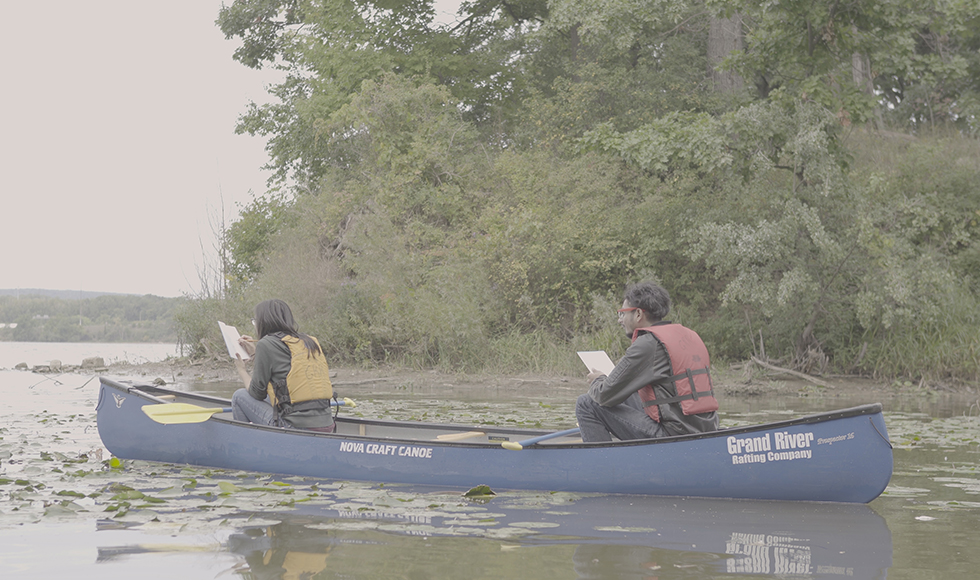A paddle through paradise

Students sketch a heron on a canoe trip through Cootes Paradise, part of the Socrates Project's Paradise Revisited initiative. Photo by Sarah Janes
A small flotilla of canoes took over Cootes Paradise this month as part of a six-month project that encourages students, faculty and staff to step out of class and offices and explore McMaster’s rich natural surroundings.
Led by associate professor of art Judy Major-Girardin, the expedition started with a hike from campus to Princess Point. There, the hikers put on life jackets, grabbed paddles, paired off and got into canoes.
The trip was open to all, and the students who joined came from a range of departments and from every faculty at Mac.
For many, it was their first time attempting to paddle a canoe.
“Just take it nice and slow till you figure it out,” Major-Girardin advised, confidently setting out for spot where she likes to watch for wildlife. As the group slowly spread out across Cootes, Major-Girardin pointed out herons, a cormorant, fish and a trio of painted turtles sunning themselves on a small log.
When one canoe had trouble steering closer to the turtles to get a better look, Major-Girardin paddled up alongside and gave them a nudge in the right direction.
That’s what the entire Paradise Revisited initiative is about, she explains: To open the door to McMaster’s wealth of natural beauty and nudge the community to go explore it.
“How many schools can say they have something like this?” she sweeps her paddle around in a broad arc to include all of Cootes. “I can’t think of another university in Canada that is has such ecological diversity, so close to it.”
People from several faculties are working together for the Socrates Project’s Paradise Revisited series, which includes trips to Coldwater Creek and the McMaster Forest, a public talk by landscape architect Patricia Johanson, an interdisciplinary panel discussion on the MacMarsh initiative and a showcase of participants’ sketchbooks from these outings.
“The whole idea is to get people out in these beautiful spaces, to appreciate how precious they are, and to think about them as part of their lives and their experience at McMaster — both teaching and learning,” Major-Girardin says.
She often incorporates nature into her art and instruction, but even students who don’t consider themselves artists find themselves thinking more clearly when they head outdoors, she says.
“The minute they’re out here, they’re hooked.” Major-Girardin says. Students learn in all kinds of ways, “and letting them observe and experience is a natural way to keep them engaged and interested while they learn.”
Plus, being outside is just good for you, she says.
“I always tell my students not to cram right before an exam. Go for a walk instead!”


